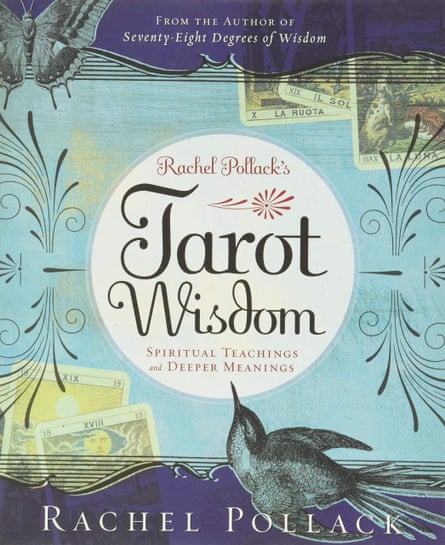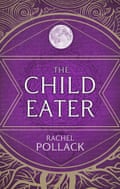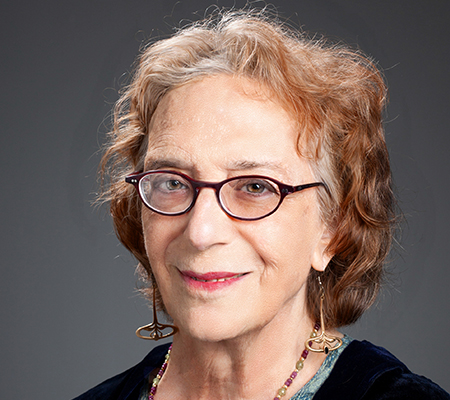By Christopher Priest
The Guardian (UK)
Monday, April 17th
Photo by Rubi Rose
The transgender pioneer Rachel Pollack, who has died aged 77 of cancer, was for many people known best as a novelist and short-story writer, winning readers and awards in many countries. She wrote in the idiom of serious fantasy, using the metaphors of numinous images to tackle concerns and events in the real world. Much of her work could be thought of as magic realism.
For Pollack, fantasy enabled her to address the matters that most affected her, including the nature and meaning of gender. She also wrote several scripts for American comics – notably one called Doom Patrol (1993-95), which featured a trans woman superhero, and often included such non-generic subjects as menstruation.
Her early novels were more or less traditional science fiction, although the third, Unquenchable Fire (1988), had several striking features. Set in an alternative US, it proposed the notion that shamanism was a workable system and mode of existence. The central character, involuntarily pregnant, discovers that her unborn child is destined for shamanism, which she obdurately fights against. Unquenchable Fire won the Arthur C Clarke award in 1989.
The novel that followed, Temporary Agency (1994), returned to this ambience. It too was well regarded, and was shortlisted for a Nebula award. Perhaps her greatest novel, Godmother Night (1996), is told in a number of short sequences, all connected. There is a quality of the classic fairytale to the writing. It again presented a real novelty, creating a fantasy world that interrogated the idea of a motorbike-riding Mother Night, a personification of Death, acting as a benign and watchful godparent.

By the time Godmother Night won Pollack the World Fantasy award the following year, the publishers had already put the book out of print and declared, for reasons not revealed, that never again would they publish a fantasy by Pollack. That short-lived edition of the novel is now a prized collectors’ item. Pollack’s final novel was The Fissure King (2017), again presented as a series of short sections, which combine to make the whole.
Pollack was also an authority on tarot cards and the belief system that surrounds them, and her book on tarot reading, Seventy-Eight Degrees of Wisdom (1980), is regarded as a principal source book. It has remained in print since first publication and is sold around the world. In all she wrote nearly 20 non-fiction books on the transcendent and divine.
She conducted these two parallel professional careers with remarkably little crossover between them, and often expressed mild surprise that in her two areas of creative involvement, each readership seemed unaware of the other.
All her fiction has a sensitivity to the images and mythology of the tarot, subtly imbued with insistent awareness of the state of transgenderism. Pollack’s work as a teacher and interpreter of the history and symbolism of the tarot became a consuming passion. She wrote the texts that accompanied several individual tarot decks, including her own, called the Shining Tribe Tarot, as well as that of the German surrealist artist Hermann Haindl and another deck based on the work of Salvador Dalí.
She said that she always looked at the tarot more as a spiritual guide, a kind of wise friend that helps discover who we are, than as a device for fortune-telling. For her, “divination” provided a means of having a two-way conversation with the divine.
For 30 years she and the tarot writer Mary Greer taught seminars at the Omega Institute for Holistic Studies, in upstate New York, and from 2002 Pollack taught an MFA course in creative writing at Goddard, a liberal arts college with campuses in Vermont and Washington.
Pollack was born in Brooklyn, New York, into a family of Orthodox Jews. She grew up with the awkward sense of being an outsider experienced by many young people who are attracted to the arts or literature. In her case the mystery of gender was an extra factor of her young life. To her it was literally unspeakable, cutting her off even more from her family.

Pollack was once asked if she had ever been a “nice Jewish boy”. She said: “I’ve always been Jewish, even when I thought I wasn’t, and I’m pretty sure I’ve never been a boy, even when I thought I was. As for nice, I’ve always tried to be, but I’ve also always tried to be tough.”
She attended New York University, graduating with a degree in English, and earned her master’s in English from Claremont Graduate University in California. She said that 1971 was her annus mirabilis. This was the year when a work colleague introduced her to the tarot. Until then she had heard of it only from TS Eliot’s poem The Waste Land. Exploring the images and symbols of the tarot led her to a further interest in the Kabbalah, the esoteric discipline of Jewish mysticism. In the same year she sold her first short story, Pandora’s Bust.
By this time she was living in London and was married – she had believed that a conventional relationship would free her from the inner conflict about gender identity. It was not to be – later that year she came out as a transgender lesbian. The marriage, to Edith Katz, survived for a little longer, but eventually failed.
After years living and working in Amsterdam, where she transitioned, Pollack returned to the US, where her career and reputation grew. She was regarded in the trans community as an icon: a mature, successful and warm personality who inspired thousands of others.
For years she lived with her business manager, Zoe Matoff – Zoe and Rachel married in August 2022, and Zoe survives her.
Rachel Grace Pollack, author and tarot teacher, born 17 August 1945; died 7 April 2023






